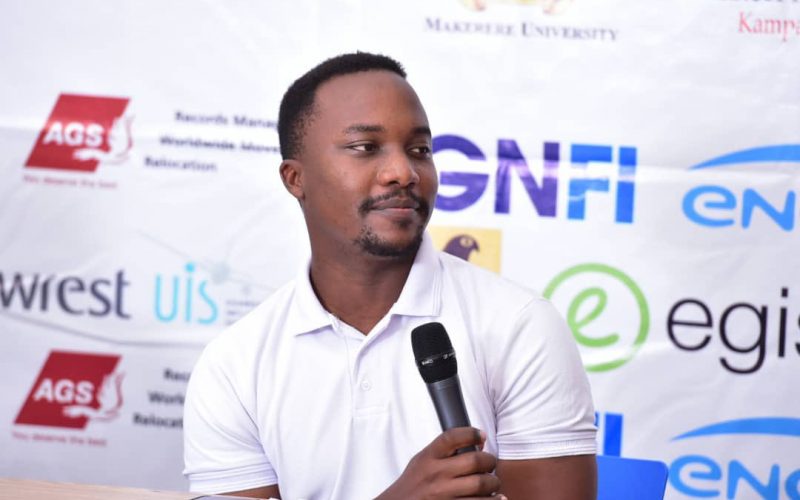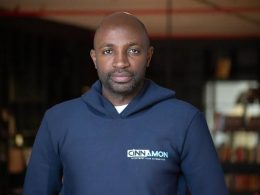By Mark Kawalya
Tourism in Uganda is big business. Prior to the start of the pandemic, Uganda received 1.6 million tourists and earned US$1.60 billion between 2018 and 2019. However, locally, tourism is perceived as a luxury that is a preserve for foreigners due to prohibitively high costs for most Ugandans.
Tubayo, a local startup, has for the last four years been creating exciting travel experiences for local and international tourists that are affordable. The firm’s mobile application and website also feature a variety of accommodation options that tourists can book. Always on the hunt for the next big thing, Brian Namanya identified a vacuum in the business and launched Tubayo to bridge the gap in the domestic tourist sector. Follow this link to read the Tubayo story.
But his journey as an entrepreneur didn’t start here, and Tubayo is not the first business he has founded. Today we look at Brian’s business journey and consider some of the experiences that have shaped his business acumen.
His first steps in business
Brian was raised the way many Ugandan children are raised. His parents considered education a gateway to enable their children to navigate the changing tides of modern living and the demands that come with it.
He was enrolled at Entebbe Education Center for his primary studies and later joined Ntare school for his secondary education. It was while he was studying for his A-levels at Kings College Buddo that he had an epiphany – he discovered that running a business and making a profit could be an exhilarating experience.
As his school was organizing a prom, there was a need for a banner to be printed. Brian’s father runs a printing business, so he quickly supplied a quotation for the service. On being given the job, he outsourced his father’s printery and made a margin after he had met the deliverables for the assignment.
“After making a small profit from the printing, I was excited. I decided to do more printing work so that I could repeat the process of making profits.” He says while smiling.
Disillusionment
Soon, Brian was handling all the print-related work for his school. He later joined Makerere University, majoring in Development Economics while helping his father out at the family business.
Since printing and graphic design are interrelated, he self-taught things like illustration and branding. Seeing the opportunities in the creative industry, he started Play Media, which was a branding business. Namanya hoped this would be a pathway that would lead him to work with some of the big, established businesses in Uganda.
However, gradually, disappointments crept in, and he became dissatisfied with the trajectory of the business. He was giving his clients top-tier results, but most of them were not willing to match up to his work with fair payment rates. He went down a path of disillusionment as he realized that, in general, few Ugandans have an appreciation for creative work.
Learning about social media
As he pursued his degree, Brian was introduced to Instagram in 2016. Around this time, the number of Ugandans that had embraced the social media platform was small. The quick-thinking Namanya started ig uganda, which is an Instagram account showcasing pictures of Ugandans enjoying life in the country.
The page quickly grew and amassed thousands of followers, being one of the very few pages showing what Uganda was like. Namanya was happy with the results and the power that came with determining which images his followers would see on a particular day. However, he still longed to find a way of monetizing the page.
Getting his big break.
One afternoon after visiting his brother at Makerere University, Namanya needed to take a taxi back home. His brother wanted him to try a new way of getting about Kampala. He ordered a Boda Boda for Brian using the ride-hailing app Taxify, leaving him impressed with how seamlessly the process worked.
Later, while at home, Namanya wondered how many people had heard of Taxify’s boda boda hailing service, since he himself had not up to this point. He saw an opportunity that he could take advantage of and his instincts were right.
The following day, he visited the Taxify offices and offered to market their service on his ig_uganda Instagram account as it had a big following. Whilst the manager liked his idea, he told him what they really needed was more boda boda riders to join the platform as they already had quite a number of users.
“This proved a challenge because I could not reach boda boda riders through Instagram. But I did some quick math and estimated one boda boda stage to have about 100 riders. If I visited 10 stages and convinced riders to join Taxify, then I could onboard about 1000 riders in a month.” Brian says.
Although the manager seemed skeptical about Brian’s ability to onboard such large numbers of riders, they gave him an agreement that would see him earn a commission off each boda boda rider he brought onto the platform. After clinching the deal, Namanya used another strategy that would see him reach even more boda boda riders in a shorter time. Most riders in Kampala are members of savings Saccos, which are supported by hundreds of motorcyclists. He decided to approach the Sacco’s in order to market Taxify’s service to motorcyclists so that they could outsource their services to the company.
“This approach worked well for me because I had added 1000 riders on the Taxify platform within two months. “he says, trying to hide a smile. “The earnings I received from Taxify are what I used as capital to start Tubayo.”
The inception of Tubayo.
As he continued to manage the ig_uganda Instagram page, Brian noticed a trend among the pictures that he uploaded. The most views the page got were on pictures that showed Uganda’s natural beauty and tourist attractions. Things like people canoeing on lakes, gorilla tracking expeditions and safari trips with wild animals were very popular.
Namanya realized that Ugandan tourism had a lot of potential and that creating a platform that would market it had the potential for a good business. He also discovered a loophole in the tourism sector that he could leverage to get a competitive advantage.
“One day I visited Nairobi with my mother. I stayed at the hotel as she went to a conference. I wished I knew someone who would take me around Nairobi. I wanted to know simple things like the best places to do shopping in Nairobi or where I could eat really good ice cream. But all the information I got was Safari related.” He says rubbing a finger across his left eyelid.
This showed him that there was a gap in the tourism sector which could show visitors a comprehensive list of exciting activities they could enjoy while visiting a country. He read about the lives of tech entrepreneurs like Steve Jobs who changed the world and looked for a way to merge technology with the tourism-related business he was looking to launch.
Growing the business
In 2018, Brian launched Tubayo, which has become a marketplace where different stakeholders in the tourism industry meet and do business. “The platform is used by two types of people,” he says. “Those that are seeking to offer a service and those that uptake those services. We designed our website in 2019 and I immediately thought clients would rush in to book our travel experiences. We organized a travel package and had to cancel it twice due to no bookings. But on the third attempt, we got a group of foreign tourists that paid for the whole expedition and that was how our success story started.”
Eventually, they were booking experiences for about 100 people per week. The Tubayo mobile application currently has over 10,000 users, and the firm boasts of the capability of 1,000-bed spaces, even though they do not own a single hotel. The Tubayo team is made up of eight permanent staff and forty non-permanent workers.
In the future, Brian hopes Tubayo will grow to become the leading travel company in the world and hopes to one day organize trips to space for clients.








